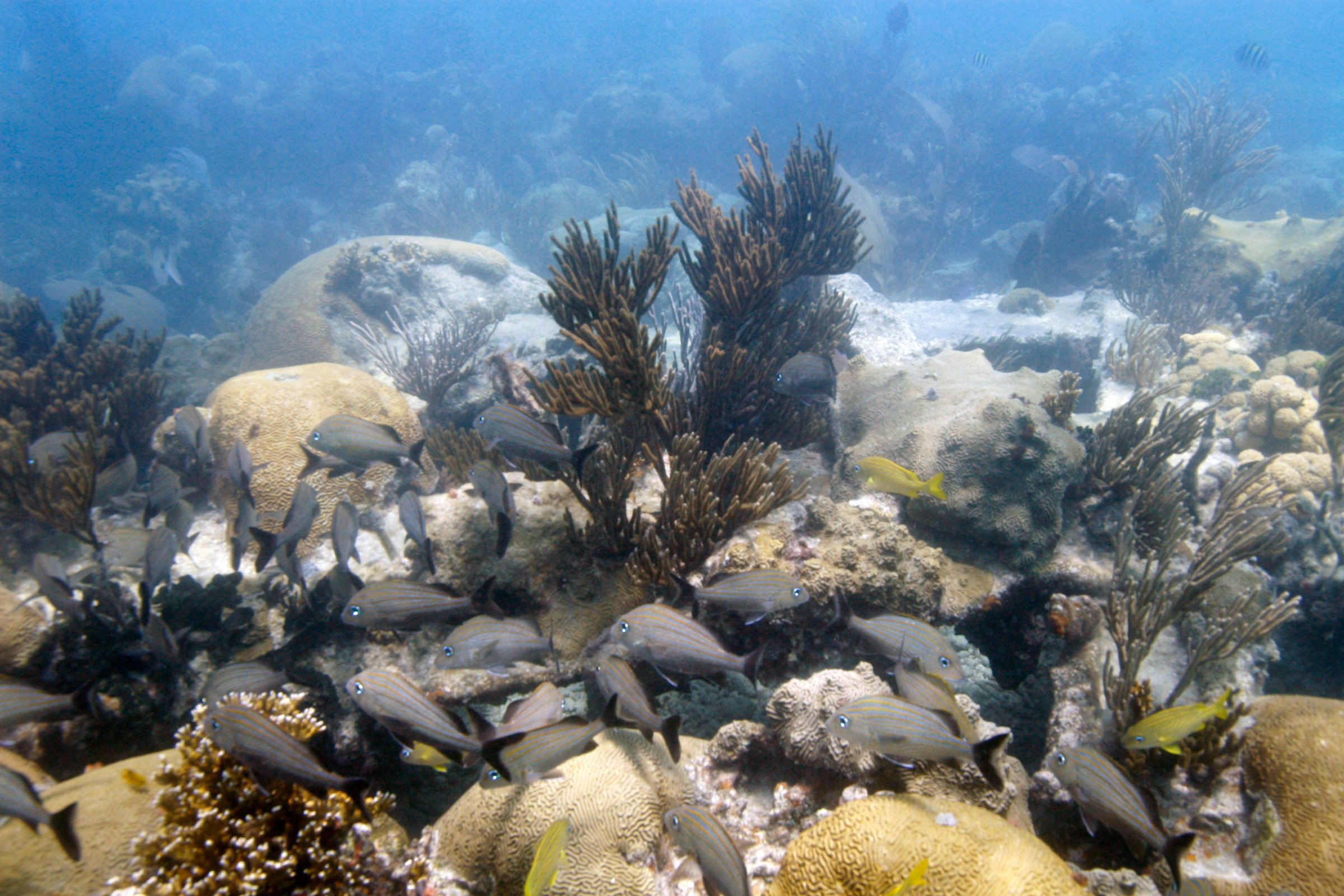
Baby coral and fish in the Pacific are able to detect both good and bad reefs, according to a Fiji-based study reported by the BBC. The study found that sea animals avoid reefs that do not give off the right chemical signals, because the failure to do so indicates that a reef is degraded.
According to the research, published in Science, when young coral and fish are presented with water samples taken from healthy reefs, and from reefs in overfished areas that are choked with seaweed, the sea creatures overwhelmingly choose the former.
Scientists say this could be a sign that simply designating a marine area as a protected zone may not be enough to help damaged reefs recover. The seaweed that has sprung up there may have to be removed as well.
“If you’re setting up a marine protected area to seed recruitment into a degraded habitat, that recruitment may not happen if young fish and coral are not recognizing the degraded area as habitat,” said Danielle Dixson of the Georgia Institute of Technology, the study’s prime author.
Once seaweed is removed, then damaged areas may start to see improvements, the BBC reports.
[BBC]
More Must-Reads from TIME
- Donald Trump Is TIME's 2024 Person of the Year
- Why We Chose Trump as Person of the Year
- Is Intermittent Fasting Good or Bad for You?
- The 100 Must-Read Books of 2024
- The 20 Best Christmas TV Episodes
- Column: If Optimism Feels Ridiculous Now, Try Hope
- The Future of Climate Action Is Trade Policy
- Merle Bombardieri Is Helping People Make the Baby Decision
Contact us at letters@time.com